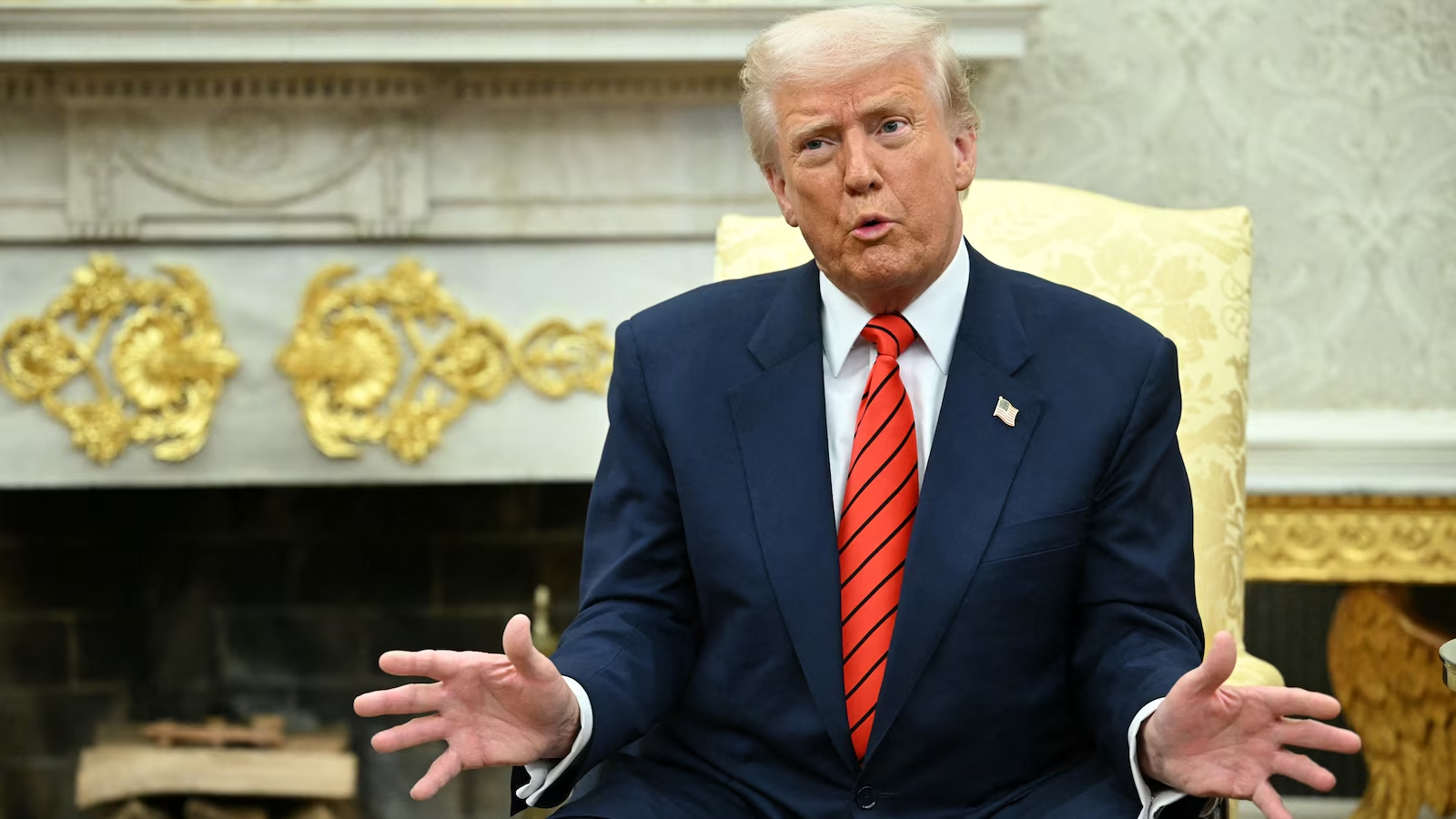Trump Suggests Canada as 51st State, Faces Canadian Pushback
President Trump continues to advocate for Canada becoming the 51st U.S. state, despite backlash from Canadian leaders emphasizing sovereignty.
Subscribe to unlock this story
We really don't like cutting you off, but you've reached your monthly limit. At just $5/month, subscriptions are how we keep this project going. Start your free 7-day trial today!
Get StartedHave an account? Sign in
Overview
President Trump reiterated his view that Canada would be better off as the U.S.'s 51st state during a recent Oval Office meeting. He stated that the U.S. should not subsidize Canada and issued new tariffs amid a trade war. Canadian leaders, including Prime Minister Justin Trudeau and others, rejected Trump's notion, affirming Canada's sovereignty. Trump's nominee for U.S. ambassador to Canada acknowledged Canada's independence, further emphasizing the divide between Trump's views and those of Canadian officials. As trade tensions escalate, experts note significant political hurdles exist for any statehood discussions.
Report issue

Read both sides in 5 minutes each day
Analysis
- Trump's commentary on Canada potentially becoming the 51st state raises questions about his seriousness, with Canadian leaders expressing genuine concern over the rhetoric.
- Despite Trump's insistence that Canada would benefit economically from joining the U.S., critics, including his own ambassador nominee, emphasize Canada's sovereignty and the complexities of such a union.
- The trade tensions between the U.S. and Canada, exacerbated by Trump's tariffs, highlight a contentious relationship that complicates any notion of Canada becoming a state. Caducing tariffs without addressing fundamental trade issues could lead to a better alliance.
Articles (3)
Center (2)
FAQ
The main legal hurdles include obtaining approval from Congress, which requires a House majority and at least 60 votes in the Senate, and the need for the president to sign the legislation into law. Additionally, Canada would likely need to hold a referendum to gauge public interest in joining the U.S.
Canadian leaders, including Prime Minister Justin Trudeau and Ontario Premier Doug Ford, have strongly rejected the idea, emphasizing Canada's sovereignty and independence. Trudeau has stated that Canada will never become the 51st state.
Trump's proposal has strained U.S.-Canada relations, with Canadians viewing his statements as offensive and a threat to their sovereignty. This has led to increased tensions, including trade disputes and negative public sentiment towards the U.S.
Trump's suggestion reflects a historical pattern of U.S. expansionism, but it is not aligned with current international norms or diplomatic practices. His approach is often compared to playing a game of Risk, where territorial expansion is seen as a strategic move.
History
- This story does not have any previous versions.
